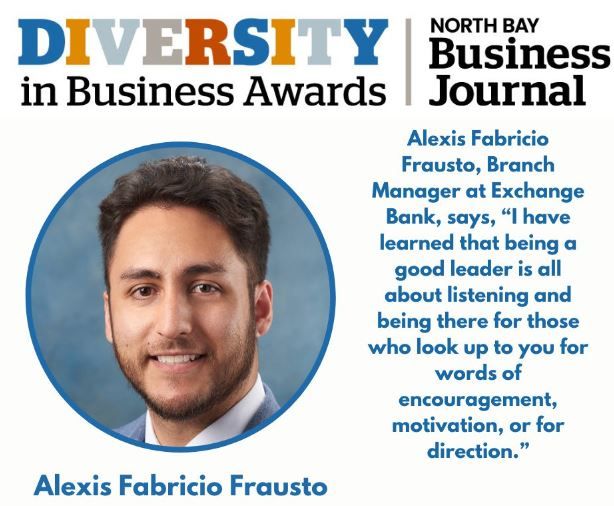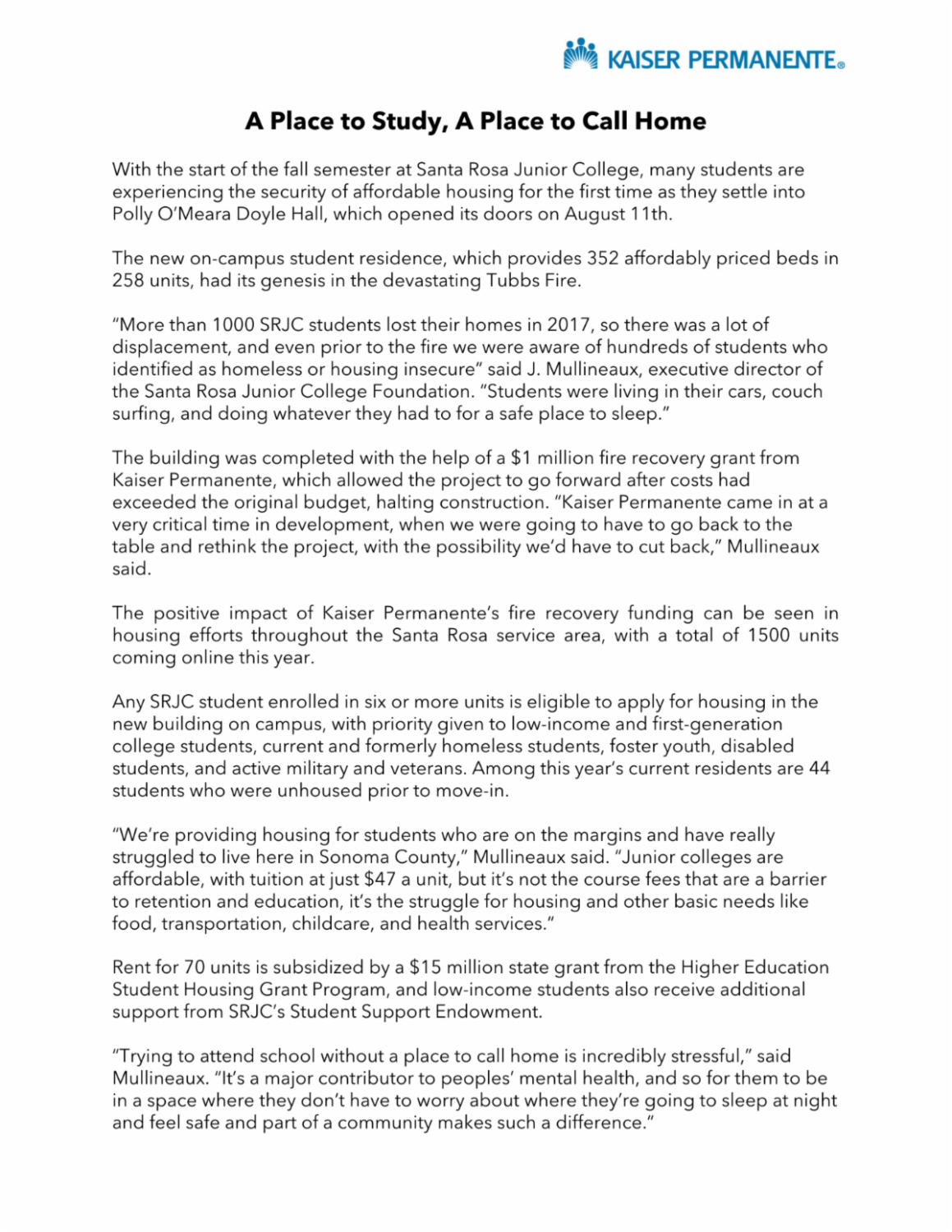Archives
Sonoma County Winegrowers New Sponsorship With Houston Rockets
https://sonomawinegrape.org/wine-lovers-score-with-houston-rockets-new-sponsorship/What do Sonoma County grape growers and basketball have in common? Both are attracting and connecting with fans in a whole new way. Building upon their successful relationships with Major League sports teams, the Sonoma County Winegrowers announced a new partnership with the Houston Rockets to bring a taste of Sonoma County to the most populous city in Texas.
This partnership highlights the Sonoma County wine region to Rockets fans at each of their games during the season, as well as, to the hundreds of thousands of Texans who visit Toyota Center throughout the year for numerous concerts, sporting events and other high-profile shows and gatherings. With this partnership, Sonoma County and its wines will be featured in Toyota Center’s exclusive lounges, restaurants, and other locations during Rockets games and all other activations at the Toyota Center during the year. These include Sonoma County wine tastings, winemaker features, regional and varietal highlights, unique access to boutique wineries for attendees during games and at events, and local retail highlights.
Just as Sonoma County is the most sustainable wine region in the world, Toyota Center was the first Texas sports facility to earn the Silver Certification for Leadership in Energy and Environmental Design.
The Houston Rockets are owned by Tilman J. Fertitta, who also owns the Landry’s portfolio of restaurants. Thus, it is no surprise that Toyota Center is recognized for its best-in-class food and wine offerings. Multiple upscale suites and private lounges throughout the center feature premium wine selections. With Sonoma County Winegrowers long-standing relationship with Landry’s, this new partnership with the Houston Rockets is a natural expansion of an ongoing effort to share Sonoma County wines and the region with Texas consumers.
“We’re excited to collaborate with Sonoma Winegrowers and feature their premium wines at Toyota Center,” said Rockets President of Business Operations Gretchen Sheirr. “This partnership will elevate our guests’ experience by offering a remarkable blend of wines to complement their enjoyment of Rockets games and our diverse range of events.”
“This exciting partnership continues our efforts to provide unparalleled access to our Sonoma County wines and our region at unique professional sports venues where people are gathering with friends and family to enjoy their time together,” said Karissa Kruse, president and chief executive officer of the Sonoma County Winegrowers. “Texas has been a great market for Sonoma County wines and the Houston Rockets partnership will only strengthen that relationship with wine lovers throughout the greater Houston area.”
Sonoma County Winegrowers
Sonoma County Winegrowers (SCW), was established in 2006, evolving from the Sonoma County Grape Growers Association, which was first launched in 1983 by local grape growers inspired to work together to elevate the region. SCW is a marketing and educational organization dedicated to the promotion and preservation of Sonoma County as one of the world’s premier grape growing regions. With more than 1,800 growers, SCW’s goal is to increase awareness and recognition of the quality, sustainability and diversity of Sonoma County’s grapes and wines through dynamic marketing and educational programs targeted to wine consumers and influencers around the world. In 2014, Sonoma County’s winegrowing community embarked on a major initiative to have all Sonoma County vineyards certified sustainable. Today, 99% of the vineyard acreage in Sonoma County has completed certification by a third-party auditor making Sonoma County the most sustainable winegrowing region in the world. In addition, in 2020, SCW became the exclusive pilot partner for the California Land Stewardship’s Climate Adaptation Certification. In 2022, SCW began envisioning a Farm of the Future which it officially introduced in 2023. SCW’s sustainability efforts have been recognized with California’s highest environmental honor, the 2016 Governor’s Environmental and Economic Leadership Award (GEELA). Learn more at www.sonomawinegrape.org.
BioMarin Hires Genentech CEO Alexander Hardy to Replace Jean-Jacques Bienaimé as CEO
Genentech Inc. CEO Alexander Hardy is stepping down immediately, the company said Wednesday, to take the top job at rare disease drug pioneer BioMarin Pharmaceutical Inc.
Hardy, 55, who took the CEO role at South San Francisco-based Genentech in March 2019, will replace Jean-Jacques Bienaimé, who is retiring effective Dec. 1 as chairman and CEO after 18 transformative years at San Rafael’s BioMarin (NASDAQ: BMRN).
At Genentech — the North American biotech unit of Switzerland health care conglomerate Roche — Ashley Magargee, head of U.S. commercial portfolio, was named interim CEO.
Bienaimé, 70, not only led BioMarin through a tremendous period of growth but helped transform how commercial biotech companies approach rare diseases. The company has grown through shrewd transactions and internal research from a series of enzyme replacement therapies for crippling rare diseases targeting lysosomal storage issues — such as mucopolysaccharidosis type 1, or MPS 1 — to a gene therapy, called Roctavian, for the bleeding disorder hemophilia A, and Voxzogo, a once-daily injection for children with achondroplasia, the leading cause of dwarfism.
Roctavian and Voxzogo have received key Food and Drug Administration approvals over the past four months.
In all, BioMarin has eight FDA-approved drugs, an enviable track record in an industry in which companies seize on one or two drug approvals to sell their companies. Still, BioMarin for years has been among stock analysts’ top targets for a buyout.
Hardy’s move from a groundbreaking biotech company on the Peninsula to another in the North Bay comes with a full set of questions around 26-year-old BioMarin’s likelihood now to be swept into an acquisition and how investors would view the loss of Bienaimé and the company’s decision to go outside the organization for his replacement.
It also raises questions about the atmosphere at Genentech, which has seen sweeping changes and multiple CEOs since Roche in 2009 bought the portion of the company it didn’t already own. The company is known for its culture, often leading the way on human resources, but has seen changes over the past several years, including its decisions to end commercial manufacturing at its South San Francisco campus and sell its massive manufacturing site in Vacaville.
BioMarin said it engaged in a multi-year succession planning process.
“We focused on candidates with experience driving commercial growth and operational excellence, as well as a strong understanding of science and product development,” BioMarin’s lead independent director, Richard Meier, said in a company statement. “Based on these criteria, the board identified Alexander as the right leader to bring BioMarin into the future, advancing care for patients with serious genetic conditions and driving industry-leading growth.”
BioMarin’s stock was down more than 3.5%, or $3.07, to $80.94 in after-hours trading Wednesday.
Hardy joined Genentech from Novartis AG in 2005 and took on several management positions before heading up the Asia Pacific region for Roche Pharmaceuticals. He headed Roche’s global product strategy starting in August 2016 before succeeding Bill Anderson as CEO in March 2019.
Genentech has 10,000 employees in South San Francisco and another 800 in Vacaville. BioMarin, with revenue of expected to hit $2 billion this year and $3 billion next year, has 3,000 employees globally. It reported a profit of $141.6 million last year and $147.3 million through Sept. 30 of this year.
When Bienaimé — known by his peers simply as “JJ” — in 2005 took over at BioMarin, the company had 300 employees and was largely a developer of small-market drugs in disarray. A proxy fight and poor management decisions, such as buying a drug that soon had generic competition, had exacted a toll on the company and its stock, according to a 2007 profile of him.
The company had a single FDA-approved product and $26 million in annual revenue.
BioMarin’s stock price hit a low of $3.87 after the previous CEO’s departure. But Bienaimé, who had been chairman and CEO at Genencor, refocused the company on drugs that could win “orphan” status, treating diseases affecting fewer than 200,000 people in the United States, and the company won approval of its enzyme replacement therapy Naglazyme to treat the connective tissue disorder MPS VI.
Bienaimé will remain a member of BioMarin’s board until the company’s annual shareholder meeting in spring 2024. He also will be an advisor to the company through the end of 2024.
At Genentech, Magargee served as interim CEO during Hardy’s recent sabbatical and will continue in the role until a successor is named. Magargee joined Genentech in 2004 and previously held senior management roles at Roche and Genentech in lifecycle management, digital customer experience, market access and as general manager in Singapore.
Brett Martinez Named 2023 California Advocate of the Year
Brett Martinez, president and CEO of Redwood Credit Union, has been named 2023 California Advocate of the Year by the California and Nevada Credit Union Leagues (CCUL). The designation recognizes the contributions Martinez and Redwood Credit Union have made to their members, communities, and the credit union movement. It also recognizes his leadership in advocacy and political action on behalf of the entire credit union industry.
“It’s been my honor to advocate for credit unions here in California and beyond,” said Martinez. “I’m passionate about the credit union movement because it’s about people helping people—elevating financial well-being, and supporting our communities in good times and bad. Whatever the future holds, you can bet we’ll work together to do the right thing to improve lives. That’s what truly sets credit unions apart.”
Martinez serves on the Boards of TruStage (formerly CUNA Mutual Group) and the North Bay Leadership Council. He’s the former Board Chair of the Credit Union National Association (CUNA), California Credit Union League, Santa Rosa Metro Chamber, and has served on the boards for CU Direct, Western CUNA Management School, and several local nonprofit and community groups including United Way, and the American Red Cross.
He has been recognized with the Distinguished Service Award by CCUL, the North Bay’s Best Community Business Leader, the Latino Leadership Award, and the prestigious Anchor Award from the National Credit Union Foundation, for his exemplary leadership during the 2017 California Wildfires.
Martinez was honored at the California and Nevada Credit Union Leagues’ REACH 2023 event, October 22-26, in Las Vegas, NV.
About Redwood Credit Union
Founded in 1950, Redwood Credit Union is a full-service financial institution providing personal and business banking to consumers and businesses in the North Bay and San Francisco. With a mission to passionately serve the best interests of its Members, team members, and communities, RCU delivers many ways for its Members to save and build money through checking and savings accounts, auto and home loans, credit cards, digital banking, business services, commercial and SBA lending, and more. Wealth management and investment services are available through CUSO Financial Services L.P., and insurance and auto-purchasing services are also offered through RCU Services Group (RCU’s wholly owned subsidiary). RCU has more than $8 billion in assets and serves more than 445,000 members with full-service branches from San Francisco to Ukiah. For more information, call 1 (800) 479-7928, visit redwoodcu.org, or follow RCU on Facebook, Instagram, Twitter, and LinkedIn for news and updates.
Star Staffing celebrates 25 years
Star Staffing is marking 25 years in operation. The women-run and women-owned business grew as an idea formed at the founder’s kitchen table.
“Being in business for 25 years is a challenge,” says CEO Lisa Lichty, who credits the company’s success to a driven and strategic team and the support of its surrounding communities. “Star has always risen to the ever-changing challenges of the industry — building strategic relationships that have lasted the test of time.”
The recruiting company now has eight locations and 55 employees with offices in Sacramento, Modesto, Fairfield, Napa, Lodi, Hayward, Petaluma and Santa Rosa.
Nicole Smartt Serres joined the company in 2009 as its third owner. The company now has $40 million in annual sales and has been on Forbes Americas Best Recruiting & Temporary Staffing award winner list and was recognized by Inc. magazine as one of the fastest-growing companies in the U.S.
Redwood Credit Union Donates More than $49,000 to Local Nonprofits for International Credit Union Day
On October 19, Redwood Credit Union joined credit unions around the world in celebrating International Credit Union (ICU) Day, a day for credit unions to reflect on their history and commitment to serving their members and communities.
RCU honored ICU Day by donating 25 cents per card transaction to local nonprofits that empower communities in Sonoma, Napa, Marin, Lake, Mendocino, and San Francisco counties, each time members used their RCU Visa® debit or credit cards on October 19. This year saw a nearly nine percent increase in the number of card transactions over 2022, generating RCU’s largest ICU Day donation to date.
In total, $49,282 was donated to nonprofit partners across six counties: Conservation Corps North Bay in Sonoma, UpValley Family Centers in Napa, Canal Alliance in Marin, North Coast Opportunities in Lake and Mendocino, and Larkin Street Youth Services in San Francisco. All these organizations share a focus on job training, helping individuals acquire the skills needed to secure stable employment and achieve financial self-sufficiency.
“ICU Day provides an excellent opportunity for RCU to fulfill our purpose of inspiring hope and elevating the financial well-being of our communities,” says RCU President and CEO Brett Martinez. “We’re honored to play an important role in empowering people to make informed financial decisions that help them achieve their goals and dreams.”
While credit unions have been serving communities for well over a century, this year’s International Credit Union Day marks 75 years of credit unions celebrating together on a single day the concept of “people helping people.” When credit unions across the world lead with purpose, it makes a positive, lasting impact on the lives of their members, communities, and employees.
About Redwood Credit Union
Founded in 1950, Redwood Credit Union is a full-service financial institution providing personal and business banking to consumers and businesses in the North Bay and San Francisco. With a mission to passionately serve the best interests of its Members, team members, and communities, RCU delivers many ways for its Members to save and build money through checking and savings accounts, auto and home loans, credit cards, digital banking, business services, commercial and SBA lending, and more. Wealth management and investment services are available through CUSO Financial Services L.P., and insurance and auto-purchasing services are also offered through RCU Services Group (RCU’s wholly owned subsidiary). RCU has more than $8 billion in assets and serves more than 445,000 members with full-service branches from San Francisco to Ukiah. For more information, call 1 (800) 479-7928, visit redwoodcu.org, or follow RCU on Facebook, Instagram, Twitter, and LinkedIn for news and updates.
Bank of America Donates a Green House to Homeward Bound
In a LinkedIn post, Amy Loflin, Bank of America Senior Vice President wrote, ” It’s not your typical day at work when you get to donate a greenhouse! Our Bank of America volunteers uncovered the need for one at Homeward Bound of Marin while working in the garden in the spring. Now fully functional, the new structure will help Homeward Bound to grow more produce and feed more residents at their shelters and, ultimately, save money. Currently, they make 12,000 meals per month for its shelter and housing programs! Harvesting produce from their garden will save the organization an estimated $300 per week on the cost of meals. We wish them a bountiful harvest and the #BofAvolunteers will be back to help with planting!”
Sonoma State University is Offering “Guaranteed Admission” to High School Students
To help make college a reality, Sonoma State University is trying a relatively new approach: High school students who have completed the requisite coursework and have a minimum 2.5 high school GPA are now “guaranteed admission” to the Rohnert Park, California-based school.
“We really wanted to provide a more visible pathway,” said Ed Mills, vice president for strategic enrollment at Sonoma State, a member of the California State University system.
Since the school began accepting applications on Oct. 1 for the fall 2024 term, there has been an uptick in interest. “Our applicant pool is already up about 5% from last year and I expect that increase to continue to rise,” Mills said.
“Everybody wins in this scenario,” according to Robert Franek, The Princeton Review’s editor-in-chief and author of “The Best 389 Colleges.”
Guaranteed admission is catching on.
Virginia Commonwealth University in Richmond, Virginia, recently announced a guaranteed admission program for first-year freshman applicants who have a GPA of 3.5 or higher and are in the top 10% of their high school graduating class.
Other schools and school systems have launched similar initiatives to get more students enrolled. Last spring, the State University of New York sent automatic acceptance letters to 125,000 graduating high school students.
Even if acceptance is not guaranteed, “there are so many schools that have reasonable admission standards and many of them are among the best schools in the country,” Franek said.
In fact, of The Princeton Review’s list of 389 best colleges, 254 schools admit at least half of all applicants. More than a quarter admit at least 80% of those who apply. (On the flip side, only 8% of schools on the list of best colleges admit less than 10% of applicants.)
“If you attain a certain level of academic competitiveness, you will earn admission and that’s very valuable,” Franek said.
Still, fewer students are going to college.
Nationwide, enrollment has noticeably lagged since the start of the pandemic, when a significant number of students decided against a four-year degree in favor of joining the workforce or completing a certificate program without the hefty price tag or Zoom screen.
However, a downturn in enrollment was in the works long before 2020.
“The enrollment crisis didn’t start with the pandemic, it accelerated with the pandemic,” Hafeez Lakhani, founder and president of Lakhani Coaching in New York, recently told CNBC. “This is the fuel on the fire.”
In fact, undergraduate enrollment in the U.S. topped out at roughly 18 million students over a decade ago, according to the National Center for Education Statistics.
Today, there are more than 2.5 million fewer students enrolled in college, Doug Shapiro, executive director of the National Student Clearinghouse Research Center, estimated.
Not only are fewer students interested in pursuing any sort of degree after high school, but the population of college-age students is also shrinking, a trend referred to as the “enrollment cliff.”
“There’s a broad-based drop in belief or trust in higher education as an institution,” said Cole Clark, a managing director within Deloitte’s higher education practice and co-author of a recent trends report. “It’s as much of a threat as the demographic cliff.”
These days, only about 62% of high school seniors in the U.S. immediately go on to college, down from 68% in 2010. Low-income students who feel priced out of a postsecondary education are often those who opt out.
Steadily, college is becoming a path for only those with the means to pay for it, other reports also show.
Would-be college students are looking more closely at the return on investment as tuition costs remain high and a shortage of workers increases opportunities in the labor force — with or without a diploma.
At the same time, deep cuts in state funding for higher education have pushed more of the costs on to students and paved the way for significant tuition increases.
And costs are still rising. Tuition and fees plus room and board for a four-year private college averaged $53,430 in the 2022-23 school year. At four-year, in-state public colleges, it was $23,250, according to the College Board.
Most Americans still agree a college education is worthwhile when it comes to career goals and advancement. However, only half think the economic benefits outweigh the costs, according to a report by Public Agenda, USA Today and Hidden Common Ground — and young adults are particularly skeptical.
The rising cost of college and ballooning student loan balances have played a large role in changing views about the higher education system, which many think is rigged to benefit the wealthy, the report found.
Only 45% of students from low-income, first-generation or minority backgrounds believe education after high school is necessary, according to a study by ECMC Group.
High schoolers are putting more emphasis on career training and post-college employment, the nonprofit found after polling more than 5,000 high school students six times since February 2020.
More than 75% of high schoolers now say a two-year degree or technical certification is enough, and only 41% believe they must have a four-year degree to get a good job, a separate report by Junior Achievement and Citizens also found.
“A lot of students are weighing their options,” said Connie Livingston, head of college counselors at college counseling firm Empowerly and a former admissions officer at Brown University.
“Does it make more sense to go to community college, trade school or directly into the workforce?” she said. “In this economic climate, that’s attractive.”
And yet, earning a bachelor’s degree is almost always worthwhile, research shows.
Bachelor’s degree holders generally earn 75% more than those with a high school diploma, according to “The College Payoff,” a report from the Georgetown University Center on Education and the Workforce — and the higher the level of educational attainment, the larger the payoff.
But even while degrees deliver a strong premium in the job market, confidence in the higher education system is declining, according to Deloitte’s Clark.
“There is a lot of rhetoric about the individual with a college degree and a ton of debt and underemployed,” he said.
“You are going to continue to see this paradox,” Lakhani added. “There’s a subconscious consensus that it’s only worth going to college if you can go to a life-changing college.”

Who We Are
Over thirty years ago, business leaders founded the North Bay Leadership Council on a simple premise: We can accomplish more by working together. Today, the Council includes 54 leading employers in the North Bay. Our members represent a wide variety of businesses, non-profits and educational institutions, with a workforce in excess of 25,000. As business and civic leaders, our goal is to promote sound public policy, innovation and sustainability to make our region a better place to live and work. For more information: Call 707.283.0028 / E-mail info@northbayleadership.org



